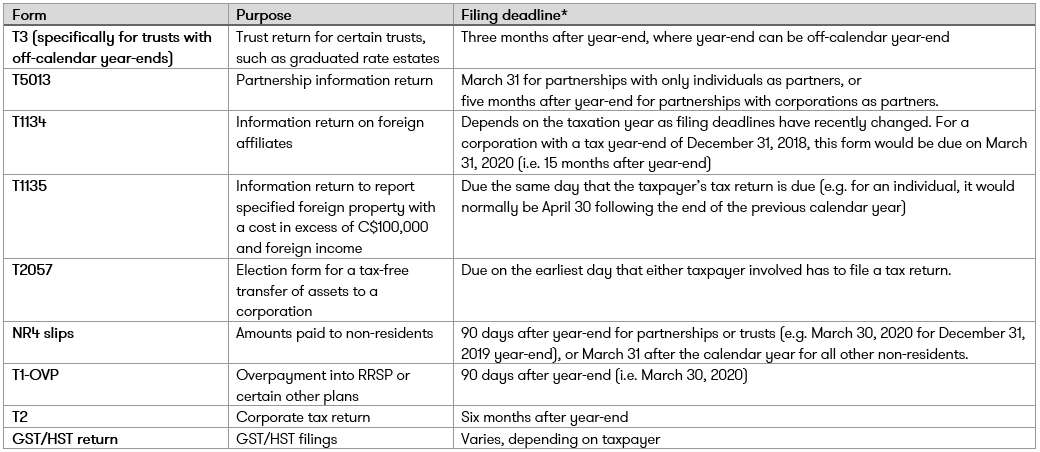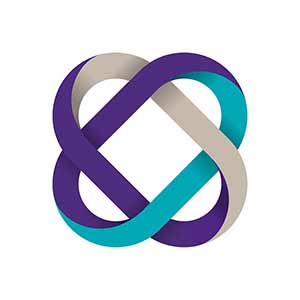-
Financial reporting and accounting advisory services
You trust your external auditor to deliver not only a high-quality, independent audit of your financial statements but to provide a range of support, including assessing material risks, evaluating internal controls and raising awareness around new and amended accounting standards.
-
Accounting Standards for Private Enterprises
Get the clear financial picture you need with the accounting standards team at Doane Grant Thornton LLP. Our experts have extensive experience with private enterprises of all sizes in all industries, an in-depth knowledge of today’s accounting standards, and are directly involved in the standard-setting process.
-
International Financial Reporting Standards
Whether you are already using IFRS or considering a transition to this global framework, Doane Grant Thornton LLP’s accounting standards team is here to help.
-
Accounting Standards for Not-for-Profit Organizations
From small, community organizations to large, national charities, you can count on Doane Grant Thornton LLP’s accounting standards team for in-depth knowledge and trusted advice.
-
Public Sector Accounting Standards
Working for a public-sector organization comes with a unique set of requirements for accounting and financial reporting. Doane Grant Thornton LLP’s accounting standards team has the practical, public-sector experience and in-depth knowledge you need.
-
Tax planning and compliance
Whether you are a private or public organization, your goal is to manage the critical aspects of tax compliance, and achieve the most effective results. At Doane Grant Thornton, we focus on delivering relevant advice, and providing an integrated planning approach to help you fulfill compliance obligations.
-
Research and development and government incentives
Are you developing innovative processes or products, undertaking experimentation or solving technological problems? If so, you may qualify to claim SR&ED tax credits. This Canadian federal government initiative is designed to encourage and support innovation in Canada. Our R&D professionals are a highly-trained, diverse team of practitioners that are engineers, scientists and specialized accountants.
-
Indirect tax
Keeping track of changes and developments in GST/HST, Quebec sales tax and other provincial sales taxes across Canada, can be a full-time job. The consequences for failing to adequately manage your organization’s sales tax obligations can be significant - from assessments, to forgone recoveries and cash flow implications, to customer or reputational risk.
-
US corporate tax
The United States has a very complex and regulated tax environment, that may undergo significant changes. Cross-border tax issues could become even more challenging for Canadian businesses looking for growth and prosperity in the biggest economy in the world.
-
Cross-border personal tax
In an increasingly flexible world, moving across the border may be more viable for Canadians and Americans; however, relocating may also have complex tax implications.
-
International tax
While there is great opportunity for businesses looking to expand globally, organizations are under increasing tax scrutiny. Regardless of your company’s size and level of international involvement—whether you’re working abroad, investing, buying and selling, borrowing or manufacturing—doing business beyond Canada’s borders comes with its fair share of tax risks.
-
Succession & estate planning
Like many private business owners today, you’ve spent your career building and running your business successfully. Now you’re faced with deciding on a successor—a successor who may or may not want your direct involvement and share your vision.
-
Tax Reporting & Advisory
The financial and tax reporting obligations of public markets and global tax authorities take significant resources and investment to manage. This requires calculating global tax provision estimates under US GAAP, IFRS, and other frameworks, and reconciling this reporting with tax compliance obligations.
-
Transfer pricing
Recognized as a leader in the transfer pricing community, our award-winning team can help you expand your business beyond borders with confidence.

-
Transactions
Our transactions group takes a client-centric, integrated approach, focused on helping you make and implement the best financial strategies. We offer meaningful, actionable and holistic advice to allow you to create value, manage risks and seize opportunities. It’s what we do best: help great organizations like yours grow and thrive.
-
Restructuring
We bring a wide range of services to both individuals and businesses – including shareholders, executives, directors, lenders, creditors and other advisors who are dealing with a corporation experiencing financial challenges.
-
Forensics
Market-driven expertise in investigation, dispute resolution and digital forensics
-
Cybersecurity
Viruses. Phishing. Malware infections. Malpractice by employees. Espionage. Data ransom and theft. Fraud. Cybercrime is now a leading risk to all businesses.
-
Consulting
Running a business is challenging and you need advice you can rely on at anytime you need it. Our team dives deep into your issues, looking holistically at your organization to understand your people, processes, and systems needs at the root of your pain points. The intersection of these three things is critical to develop the solutions you need today.
-
Creditor updates
Updates for creditors, limited partners, investors and shareholders.

-
Governance, risk and compliance
Effective, risk management—including governance and regulatory compliance—can lead to tangible, long-term business improvements. And be a source of significant competitive advantage.
-
Internal audit
Organizations thrive when they are constantly innovating, improving or creating new services and products and envisioning new markets and growth opportunities.
-
Certification – SOX
The corporate governance landscape is challenging at the best of times for public companies and their subsidiaries in Canada, the United States and around the world.
-
Third party assurance
Naturally, clients and stakeholders want reassurance that there are appropriate controls and safeguards over the data and processes being used to service their business. It’s critical.
-
 Assurance Important changes coming to AgriInvest in 2025AgriInvest is a business risk management program that helps agricultural producers manage small income declines and improve market income.
Assurance Important changes coming to AgriInvest in 2025AgriInvest is a business risk management program that helps agricultural producers manage small income declines and improve market income. -
 Tax alert Agricultural Clean Technology ProgramThe Agricultural Clean Technology Program will provide financial assistance to farmers and agri-businesses to help them reduce greenhouse gas (GHG) emissions.
Tax alert Agricultural Clean Technology ProgramThe Agricultural Clean Technology Program will provide financial assistance to farmers and agri-businesses to help them reduce greenhouse gas (GHG) emissions. -
 Tax alert ACT Program – Research and Innovation Stream explainedThe ACT Research and Innovation Stream provides financial support to organizations engaged in pre-market innovation.
Tax alert ACT Program – Research and Innovation Stream explainedThe ACT Research and Innovation Stream provides financial support to organizations engaged in pre-market innovation. -
 Tax alert ACT Program – Adoption Stream explainedThe ACT Adoption Stream provides non-repayable funding to help farmers and agri-business with the purchase and installation of clean technologies.
Tax alert ACT Program – Adoption Stream explainedThe ACT Adoption Stream provides non-repayable funding to help farmers and agri-business with the purchase and installation of clean technologies.
-
Builders And Developers
Every real estate project starts with a vision. We help builders and developers solidify that vision, transform it into reality, and create value.
-
Rental Property Owners And Occupiers
In today’s economic climate, it’s more important than ever to have a strong advisory partner on your side.
-
Real Estate Service Providers
Your company plays a key role in the success of landlords, investors and owners, but who is doing the same for you?

-
Mining
There’s no business quite like mining. It’s volatile, risky and complex – but the potential pay-off is huge. You’re not afraid of a challenge: the key is finding the right balance between risk and reward. Whether you’re a junior prospector, a senior producer, or somewhere in between, we’ll work with you to explore, discover and extract value at every stage of the mining process.
-
Oil & gas
The oil and gas industry is facing many complex challenges, beyond the price of oil. These include environmental issues, access to markets, growing competition from alternative energy sources and international markets, and a rapidly changing regulatory landscape, to name but a few.
The federal government has announced financial aid totaling $82 billion for the COVID-19 pandemic. $55 billion of this total is in the form of tax deferrals that are available to all taxpayers. Here’s what you can expect as new filing and payment deadlines apply.
Major announcements:
The government has introduced several tax measures to provide relief to Canadians, including:
- An extension of filing deadlines for individuals and trusts
- An extension of payment deadlines for most taxpayers up to September 1, 2020 (for amounts due on or after March 18 and before September 1, 2020)
- Allowing electronic signatures on forms, including the T183 and T183CORP
- Reducing the minimum withdrawals from RRIFs by 25% for 2020
On March 18, the federal government announced significant economic measures to support the economy during the COVID-19 pandemic. A total of $82 billion in financial aid, equal to three percent of Canada’s gross domestic product, was announced, including
- $27 billion in direct payments to Canadians who will require support, and
- $55 billion in tax deferrals available to all taxpayers.
The package announced today, together with the economic aid announced last week, provide economic stimulus totaling $93 billion. The tax measures announced as part of that stimulus package are outlined in this tax alert.
Extensions of tax filing and payment deadlines
The federal government announced extensions for tax filing deadlines and payment deadlines, as follows:

*The payment deadline applies to all income tax payments due on or after March 18, 2020, and before September 1, including balances and installments due. No interest or penalties will apply up to this date. No extensions for GST/HST filings or payments have been provided for yet.
**Individuals who personally report business income, as well as their spouses, have an extended filing deadline of June 15. Given the extension of the filing deadline for individuals up to June 1, it appears that the filing deadline for individuals with a June 15 filing deadline currently remains unchanged.
***A corporation normally has a tax return filing deadline that is six months after its taxation year-end. Furthermore, depending on the type of corporation and other criteria, the due date for payment of its balance owing for the taxation year would be either two months after its year-end or three months after its year-end. For example, a corporation with a December 31, 2019 year-end would have a regular filing deadline of June 30, 2020. This filing deadline currently remains unchanged. That same corporation would have to pay its balance owing for the 2019 taxation year by either February 29 or March 31, 2020. If this corporation is a small business or, more specifically, a Canadian-controlled private corporation (CCPC) that meets certain criteria, it would qualify for the later balance due day of March 31. As this day is after the announcement date of this stimulus package, the CCPC would have an extended payment deadline for its balance due of September 1, 2020.
No extension announced… yet
No announcements have been made to extend the filing deadline for partnership returns (T5013) or any other information returns, as well as other tax filings. The filing deadlines that have not yet changed include:

*Note: in an effort to streamline the information presented here, explanations have been simplified. For details on your specific scenario please contact your Grant Thornton advisor.
Furthermore, no extensions have been provided for payments related to GST/HST, source withholdings or any other payments not specifically related to income tax.
Other important filing deadlines for individuals and corporations can be found on the Canada Revenue Agency’s (CRA) website.
Other tax-related measures
Due to the current pandemic, many Canadians are under quarantine or self-isolation. Apart from the significant hardships this has caused, particularly for the elderly, this has also resulted in a practical tax-related problem of obtaining the required signature to authorize a representative to file a taxpayer’s return. To deal with this problem, the federal government announced that it would accept electronic signatures, effective immediately, for all requirements under the Income Tax Act. Specifically named in the press release were forms T183 and T183CORP, which provide authorization for a representative of a taxpayer to e-file that taxpayer’s return on their behalf.
Canadians who have retired and are withdrawing amounts from their Registered Retirement Income Funds (RRIF) are required to withdraw a minimum amount each year, based on various factors. Due to the negative economic impact of the COVID-19 pandemic, many Canadians withdrawing amounts from their RRIF are faced with significantly decreased values in their investments, which will negatively impact their ability to make those minimum withdrawals. In recognition of this, the minimum withdrawals from an RRIF have been reduced by 25% for 2020.
The government also announced leniency with respect to audits of taxpayers, as follows:
- Canada Revenue Agency (CRA) will not commence any audits (GST/HST or income tax) within the next four weeks on small and medium-sized enterprises.
- Any audits that are currently underway will be temporarily suspended for the “vast majority of businesses”, as stated in the news release. No clear indication was provided on which businesses would not qualify for this suspension or how long this suspension would last.
The CRA offers free on-site visits by a CRA liaison officer for owners of a small business or self-employed individuals to help them understand their tax obligations. Due to the outbreak, liaison officers will not be making in-person visits; however, they will still be available over the phone to provide the same assistance. For organizations that provide assistance to taxpayers belonging to certain groups, the CRA also provides in-person visits through their Outreach Program, as a way to provide help for these taxpayers. Again, due to the outbreak, the CRA has taken steps to continue this program by making its outreach officers available over the phone. These newly revamped remote programs could be invaluable to individuals and businesses as they navigate the uncertain times ahead.
We're here to helpWe understand that you want to be agile and responsive as the situation unfolds. Having access to experts, insights and accurate information as quickly as possible is critical—but your resources may be stretched at this time. We’re here to support you as you navigate through the impacts of coronavirus on your business and your investments. |






